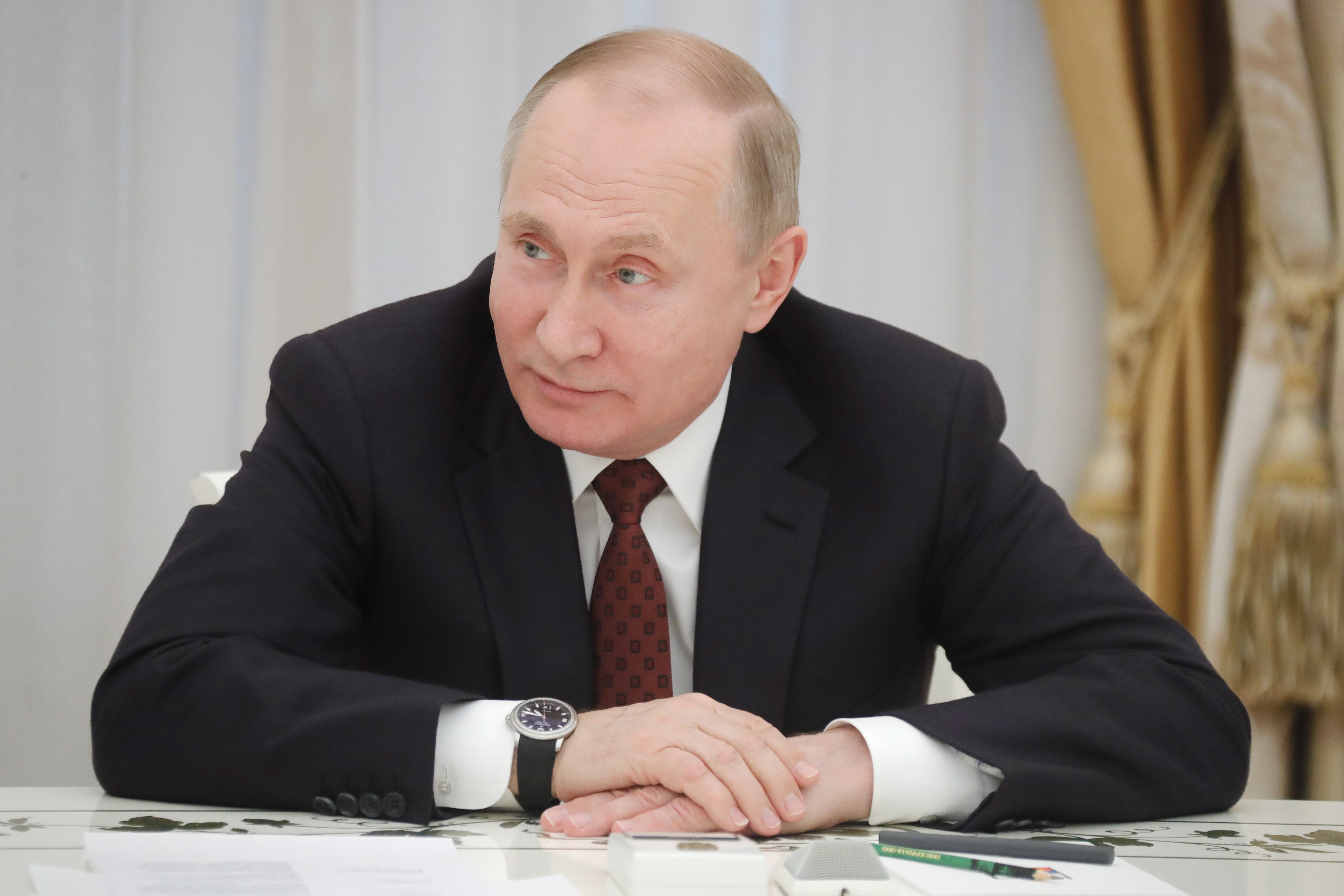Russia's Orthodox Church has welcomed the re-election of President Vladimir Putin for a fourth six-year term, despite accusations of vote rigging and intimidation, while the minority Catholic Church pledged to help build a civil society in Russia.
“Your convincing victory in open and fair conditions shows Russians are rallying around you,” Patriarch Kirill told Mr Putin in an open letter on Monday this week. “It testifies that popular aspirations coincide with the way you see Russia’s future as a peace-loving, truly sovereign power, where human rights and freedoms are combined with responsibility for preserving and multiplying our nation’s spiritual, moral and cultural values.”
“Our Church always stresses its readiness to work with the Russian Federation’s secular powers on important issues, such as building a civil society and forming healthy life patterns,” said Mgr Igor Kovalevsky, secretary-general of the Catholic bishops’ conference in Russia. The head of the bishops’ conference urged Mr Putin to care for “our whole people’s welfare”.
The church leaders were reacting to Sunday's nationwide ballot, which gave Mr Putin more than three-quarters of votes on a 67 per cent turnout.
The main opposition leader, Alexei Navalny, was barred from the poll.
Patriarch Kirill said support had come from people of “different nationalities, religions and faiths, different social ranks and age-groups, and even different political views”, adding that he prayed God would now give the president “strength to carry out his plans”.
Metropolitan Hilarion Alfeyev, the Orthodox Church’s external relations director, told the Russia-24 TV channel on Monday that he was now counting, among other early reforms, on an expansion of classes on religion and ethics in Russian schools. “I voted for the man whose name we associate with hopes for our society’s stable development, for improving the welfare of citizens and for raising the birthrate,” he said in a website message.
Mgr Kovalevsky called on President Putin to “justify voters’ confidence” after his victory. “Although we don’t currently face any special barriers to our service on Russian territory, we suffer the same problems as the rest of society with bureaucracy, corruption and the ambiguous implementation of laws,” he said.
In a 21 March interview with Catholic News Service, Mgr Kovalevsky said Russian Catholics would not “draw political conclusions” from the election.
Meanwhile the head of the Russian bishops’ conference, Bishop Clemens Pickel of St Clement Diocese in Saratov, told Mr Putin in a 20 March congratulatory message that Catholics prayed he would “cope adequately” with coming challenges and “justify the confidence of voters.”
“Russian citizens representing different nations and religions have entrusted you with the responsible task of being the president and caring for our whole people’s welfare, strengthening peace, harmony and social justice,” Bishop Pickel said.
“Catholics hope for the further development of state-church relations and assure you Russia’s Catholic community is ready to make a realistic contribution to our society’s development, to strengthening its spiritual and moral values, to establishing peace and harmony and fighting against social ills.”
In a brief pre-election message, Bishop Pickel had urged Catholic voters to “fulfil their civic duty” and said church teaching encouraged religious believers “to contribute to the public good in the spirit of truth, justice, solidarity and freedom.”
Mgr Kovalevsky also told CNS that church and Vatican representatives had “worked for many years” to improve conditions for foreign clergy, and he confirmed that hopes were now high that the issue could be “resolved by all interested parties”.
“Unfortunately, the majority of Catholic priests and religious here aren’t citizens of the Russian Federation, and we’ve had constant problems obtaining rights for them,” said Kovalevsky.
“Even now, we don’t expect any change in Russian laws. But there are positive signs, especially in our ties with Russia’s Orthodox Church, with whom we’re now cooperating well on humanitarian, charitable and social projects.”
Mr Putin claimed victory on Sunday night with 76.6 per cent of the vote, his highest score after 18 years on power, far ahead of the nearest of eight rival candidates, the communist Pavel Grudinin and ultra-nationalist Vladimir Zhirinovsky, who claimed 12 and six per cent respectively.
Although Russia’s Central Election Commission said it had not registered serious complaints, election monitors documented numerous cases of ballot stuffing and intimidation, while the Organisation for Security and Co-operation in Europe (OSCE) said the vote had been marked by media restrictions and unfair pressure on critical voices.
Meanwhile, Russia's ambassador to the Holy See, Alexander Avdeiev, told the I.Media network ties between Moscow and Rome were now “very friendly”, helped by cultural exchanges and a “growing mutual respect”, adding that Mr Putin’s Government planned to liberalise access to visas and work permits this year for visiting Catholic clergy.
Sunday's election took place amid growing tension with Britain and its US and European allies over the 4 March nerve-agent attack on a Russian exile in Salisbury, which has been widely blamed on the Kremlin. Speaking last week, the head of the Moscow Patriarchate's Department on Church, Society and Media, Vladimir Legoyda, condemned the West’s “consistent and rigid course towards demonising Russia”, and warned the “whole world” would suffer from newly announced British sanctions, which were matched last week by Moscow’s expulsion of British diplomats and forced closure of the British Council.
Pic: Russia's President Vladimir Putin meets with candidates in the 2018 Russian presidential election at Moscow's Kremlin. Mikhail Metzel/TASS?PA Images



 Loading ...
Loading ...